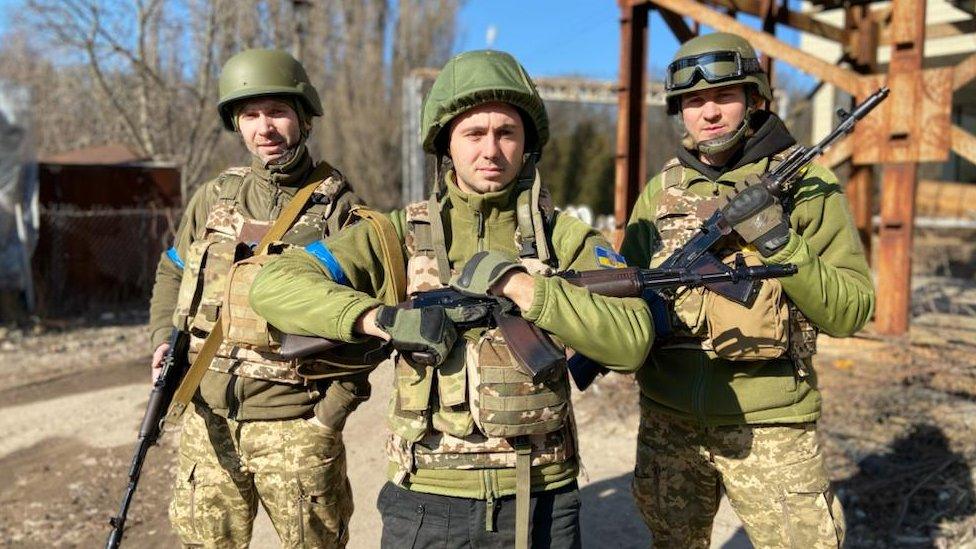Ukraine round-up: Putin's plans and an oil ban
- Published
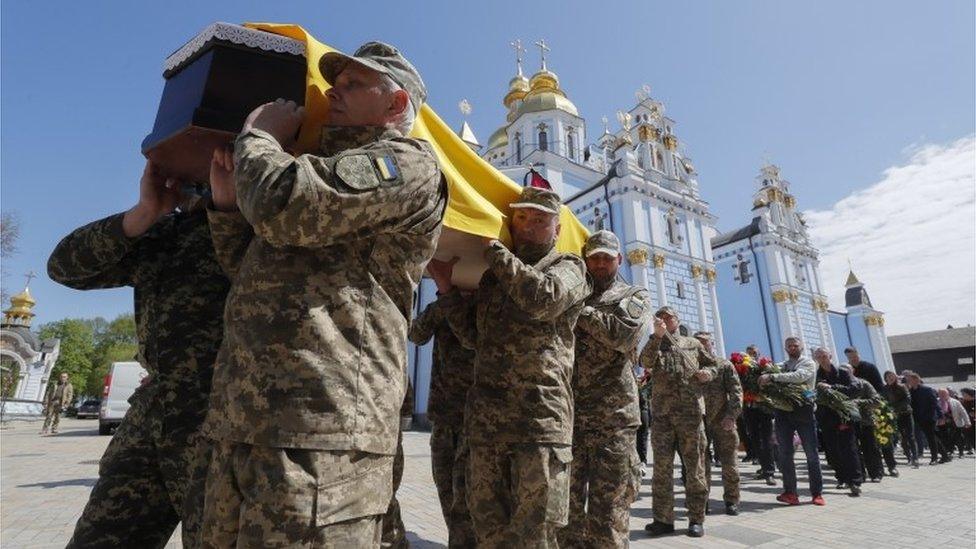
A Ukrainian military funeral in Kyiv on Wednesday
Russia's oil industry could lose access to one of its biggest markets after the EU announced a total ban in retaliation for Moscow's invasion of Ukraine.
The toughest sanctions to come out of Brussels yet will see Russian crude oil imports phased out within six months.
But the measures need to be approved by EU members, and Hungary says it will veto the measures in their current form.
Paul Kirby from our Europe desk has the full story.
Also facing new EU sanctions are Russian military officers suspected of war crimes in Ukraine.
The measures are designed to damage Russia's economy and penalise President Vladimir Putin, high-ranking officials and those who have benefited from his rule.
Apart from oil and war crimes suspects they target some of Russia's top banks, disconnecting them from the international payments system Swift, used to transfer money across borders.
And three of Russia's state-owned broadcasters are banned from the EU on cable, satellite and the internet.
Read more about how sanctions work and what action has already been taken in our explainer.
How Germany is getting rid of Russian oil
The EU accepts that it isn't going to be easy to get rid of Russian oil and few countries are as keenly aware of the challenge as Germany.
Our correspondent Damien McGuinness has been to Schwedt to see for himself the refinery at the heart of Russia's oil supply.
While people in the the oil town stand behind Ukraine and understand the urgency of moving away from Russian energy, there are fears closing down the site could destroy the local economy.
Russia denies plans to declare war on Victory Day
On 9 May Russia marks Victory Day, which commemorates the defeat of the Nazis and the end of World War Two.
Western officials have speculated that President Vladimir Putin might have plans for a major announcement that day - in particular, declaring that Russia is at war with Ukraine.
Moscow has up until now denied it is at war, instead referring to the invasion as a "special military operation". Such a move might signal a major escalation in the conflict.
Russia on Wednesday dismissed the rumours as "nonsense".
Where the fighting is now
On the ground in the east fighting continues. In the port of Mariupol, Ukrainian soldiers remain under siege at a steel works, while Russian forces are said to be advancing around the town of Izyum.
But around the city of Kharkiv, Ukrainian forces are reported to be pushing Russian troops back.

The war is not confined to the east, though: Ukraine has reported nearly 50 Russian air strikes across the country on Tuesday alone.
Disabled children 'dumped' in Ukrainian institutions
There are claims that thousands of disabled Ukrainian children have been forgotten and abandoned in institutions that can't look after them.
The human rights organisation, Disability Rights International, has carried out an investigation and found children with severe disabilities tied to beds in overrun children's homes unable to cope.
The BBC has been given exclusive access to an institution in western Ukraine, where disabled children from the east have been left by their carers who fled to neighbouring countries.
'Because of their disabilities they are not treated as human beings'
A letter from Zelensky
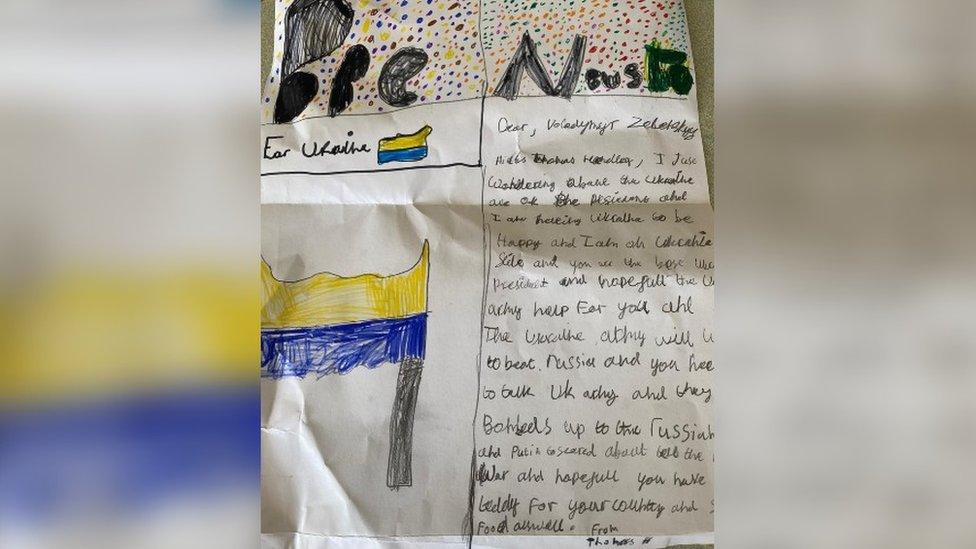
Thomas wrote the letter after learning in school how they could support people in Ukraine
A 12-year-old schoolboy called Thomas in the English city of Durham wrote to Ukrainian President Volodymyr Zelensky to say he was on the country's side and that Mr Zelensky was "the best president".
The letter was among 270 parcels of medical supplies, clothing, food, toiletries and four wheelchairs donated by pupils from Durham Trinity School and Sports College, which helps youngsters with a wide range of additional learning needs.
The convoy was driven in a cattle truck to a refugee reception centre last month, which was set up at the East Warsaw railway station in Poland to help Ukrainians fleeing the conflict.
Despite not expecting a reply, his school received one last week, in which the Ukrainian leader thanked him for his support.
"Thomas came home from school waving it in his hand," the boy's mother, Kimberley, told told BBC Radio Newcastle. "I don't know whether we'll be able to prise it out of his hands but we're going to frame it and give it pride of place in our home."
See President Zelensky's reply and read the full story here.

War in Ukraine: More coverage

- Published3 May 2022
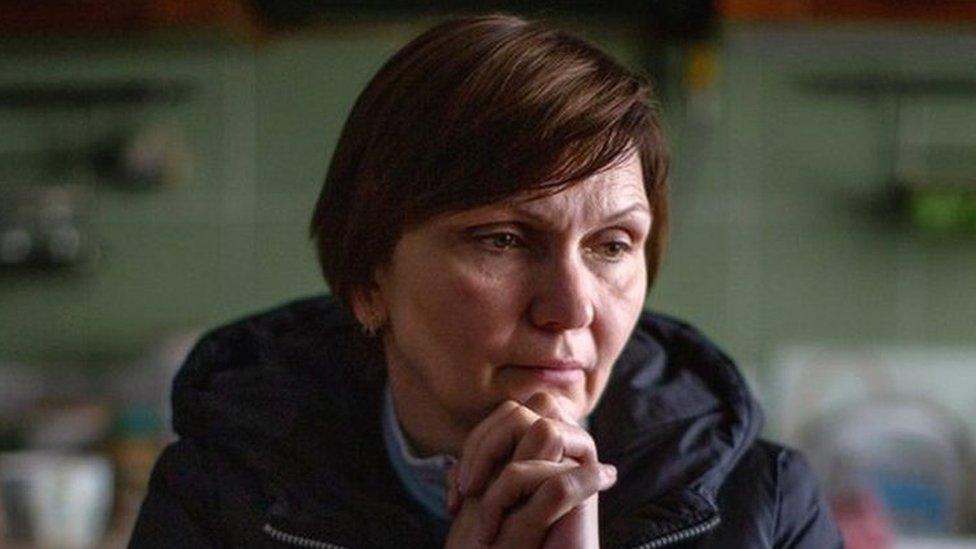
- Published3 May 2022
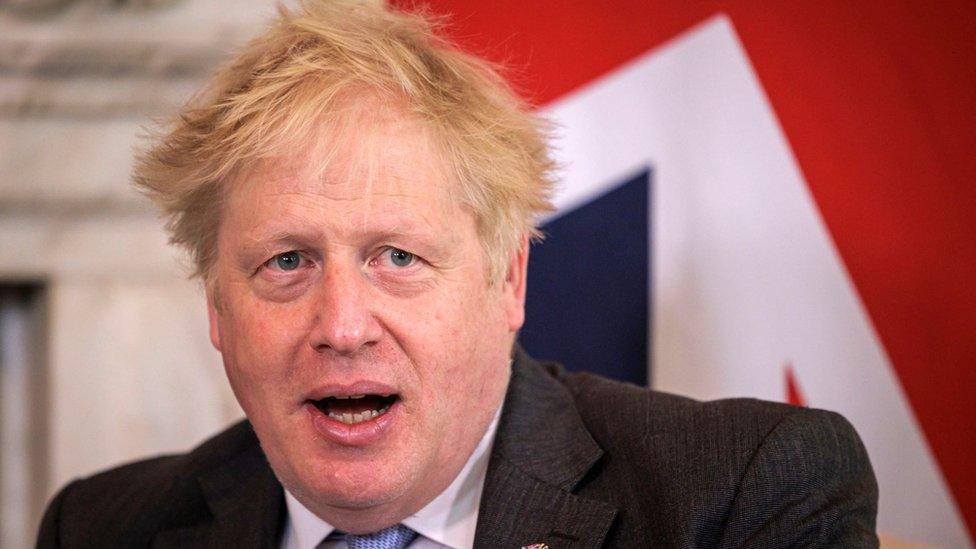
- Published3 May 2022
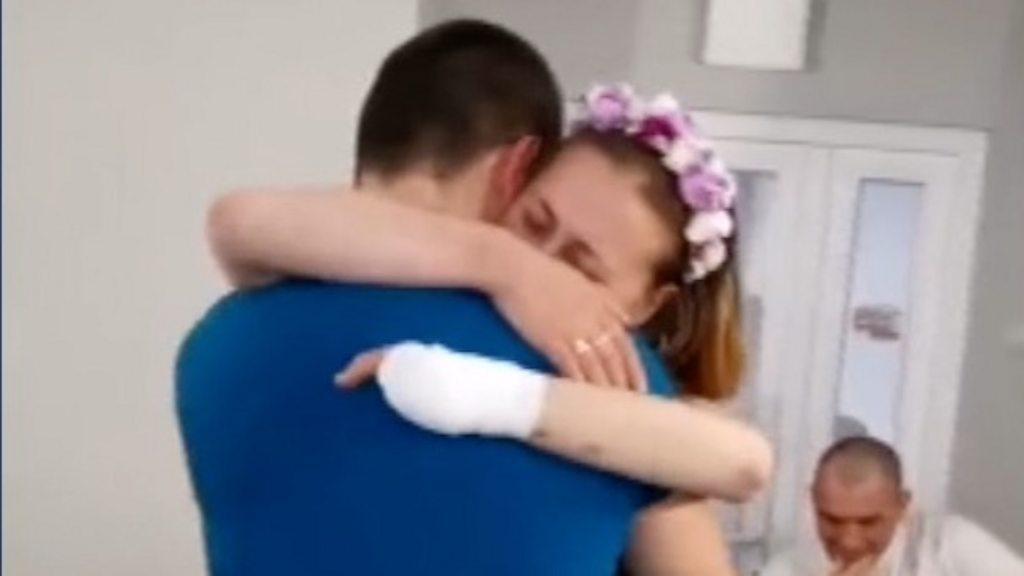
- Published3 May 2022
